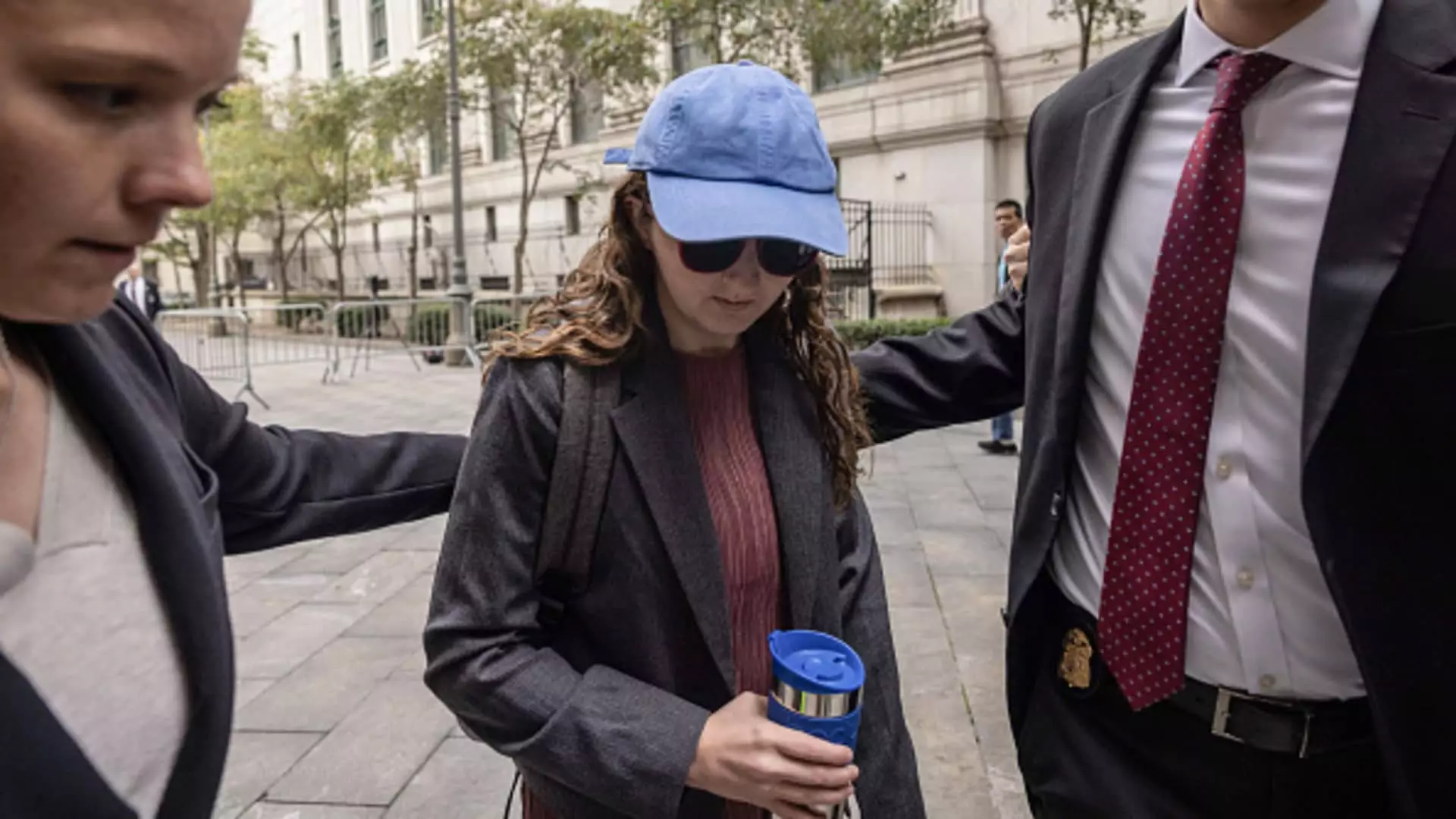Caroline Ellison, once positioned at the helm of Alameda Research, has emerged as a pivotal figure in the ongoing saga of the FTX cryptocurrency exchange scandal. On a recent Tuesday, Ellison was sentenced in New York federal court to two years imprisonment. In a significant twist, she was also ordered to forfeit a staggering $11 billion, highlighting the gravity of her involvement in the massive fraud that precipitated the collapse of FTX, which had at one point boasted a valuation of $32 billion. This sentencing underscores the immense legal and financial repercussions that can ensue from corporate negligence and malfeasance, particularly in the volatile realm of cryptocurrency.
The differences in sentences between Ellison and her former boyfriend, Sam Bankman-Fried, illuminate the complexities of white-collar crime prosecution. While Bankman-Fried was sentenced to 25 years after being convicted on all seven counts against him, Ellison’s plea deal granted her a significantly lighter sentence. Her attorneys had advocated for a grace period of supervised release rather than imprisonment, which aligns with the traditional legal principle that cooperators often receive leniency. This principle raises intriguing questions about fairness and justice in the legal system, especially in cases involving elaborate financial fraud schemes.
Ellison’s cooperation with prosecutors is a crucial aspect of her case. Following her decision to plead guilty to charges of conspiracy and financial fraud in December 2022, she positioned herself as a key witness against Bankman-Fried. Such plea agreements are commonplace in white-collar crimes, where the complexities of financial operations and corporate wrongdoing can lead to challenging prosecutions. While plea deals may expedite judicial processes and ensure testimony against higher-profile defendants, they also spark discussions about accountability. Does securing a lighter sentence dilute the justice served to victims of these financial crimes?
The FTX narrative is more than just about two individuals; it represents a cautionary tale for the cryptocurrency industry at large. As regulatory bodies begin scrutinizing cryptocurrencies more fiercely, Ellison’s sentencing serves as a stark reminder of the potential pitfalls of unregulated financial environments. With cryptocurrency’s rapid rise in popularity, the ramifications of high-profile fraud cases may catalyze changes in legislation and oversight. Stakeholders in cryptocurrency must now navigate an evolving landscape characterized by both opportunity and heightened legal vigilance.
As the dust settles on this significant legal outcome, the FTX case serves as a crucial chapter that may influence future regulatory approaches toward cryptocurrency firms. Investors and the public are likely increasingly demanding transparency and accountability from those who oversee vast financial operations. The key takeaway from Caroline Ellison’s sentencing lies not only in her individual accountability but also in the larger thematic debate regarding the integrity of financial markets and the individuals who operate within them. The ramifications of this case will reverberate throughout the industry, potentially reshaping the regulatory framework designed to protect investors in this rapidly evolving sector.


Leave a Reply